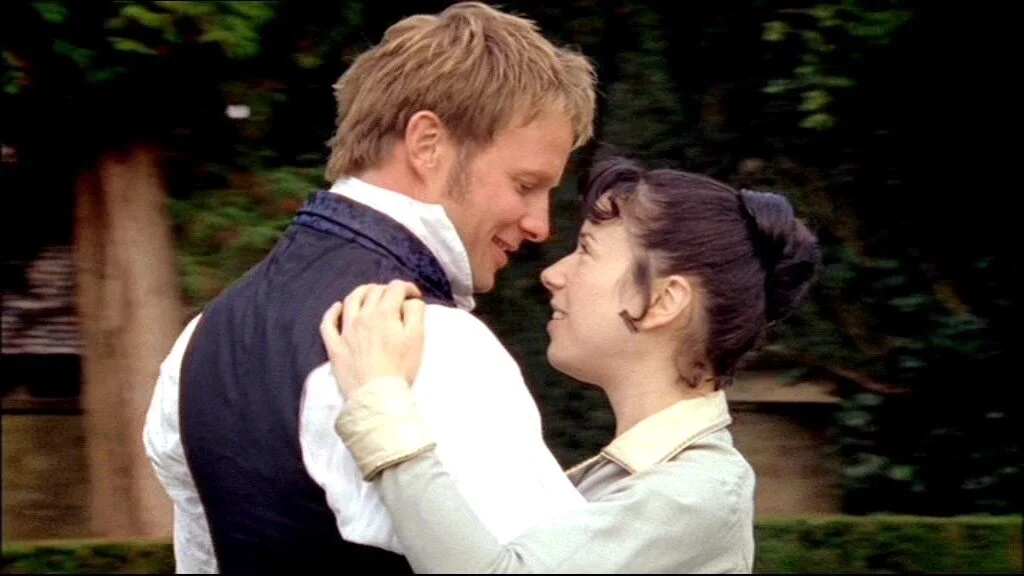ANNE ELLIOTT AND THE MODEL WOMAN IN PERSUASION
Persuasion, Jane Austen’s final novel, stands out as being significantly different from her other novels. It features a more somber story, lacking the witty dialogue that has made Pride and Prejudice so beloved. Anne Elliott, the twenty-seven-year-old protagonist, is substantially older than most of Austen’s previous heroines and sharply contrasts as a passive character. At first, Anne has little agency in the story, being pushed around by the plot rather than driving it herself. Her gentle, reserved personality seems to make her less likable than a character such as Elizabeth in Pride and Prejudice, who is known for her sharp wit and sense of humor.
Austen may have been Anne’s biggest critic, writing in a letter to her niece, “you may perhaps like the heroine, as she is almost too good for me”. Despite her feelings for Anne, a closer look at the text reveals Austen’s thoughtfulness in presenting Anne as a woman of conviction. For all her complacency, Anne operates cleverly within her family dynamic, a twist to the reader’s first impression of a submissive woman. Perhaps, Anne is too good. A seemingly perfect heroine. The model of an ideal, of a woman who navigates her life with a maturity and emotional intelligence that we should all aspire to.
Early in the novel, Austen describes Anne as a woman “with an elegance of mind and sweetness of character, which must have placed her high with any people of real understanding, [but] was nobody with either father or sister: her words had no weight her convenience was always to give way, she was only Anne.” This description connotes a weakness in Anne. Despite her intelligence and maturity, Anne gains no respect from her family. Dominated by an arrogant father and two self-absorbed sisters, her life is ultimately one of silence and powerlessness. Yet, the failings of the Elliott family do not produce a selfish and vain character, but a kind one instead. She is loving and forgiving. Equally astonishing, Anne’s circumstances as woman of low peerage, past her prime, with no hope of marriage, or inheriting also fails to create a person full or rage, hate, or bitterness. Though her meekness and tendency to comply with others’ whims can best be explained by neglect and verbal abuse, Anne uses her gifts to her advantage, navigating delicate situations with grace, understanding, and wisdom.
This evidence of maturity is rarely seen at the beginning of Austen’s novels. Two other Austen protagonists bear resemblance to Anne. Fanny Price in Mansfield Park and Catherine Morland in Northanger Abbey are both subjected to mistreatment by their families and friends. They are quiet characters with strong moral compasses and a sense of duty to their respective families and friends. Fanny is horrified by the ongoing flirtation between her engaged cousin and Henry Crawford, especially at the pronounced displays that take place during the play her family puts on. When Catherine’s friends cause a misunderstanding, she jumps to correct it, refusing to be tricked out of a budding courtship. But Fanny and Catherine differ from Anne in their levels of maturity. Fanny victimizes herself with self-pity, and Catherine’s desire to stand up for herself often leads her to ignore propriety and make irrational choices. Anne does neither. She allows herself to be sad but does not allow herself to be a victim, timing the moments when she speaks to be appropriate and effective.
Austen gives Anne power by making her an example to the reader. Sir Elliot’s neglect, Elizabeth’s criticisms, and Mary’s narcissism do not cause Anne to be resentful. When Anne receives a slight from Captain Wentworth, “she could take no revenge.” Regret may take root, but bitterness does not. In Anne’s world, everyone is constantly speaking, so she retreats to her reflections both as an escape and as a way to compose herself before she chooses to speak to others. What at first seems like passivity is actually Anne’s strength. As the novel progresses, she eventually finds her voice, coming to realize “that her words were listened to.” There is a wisdom in Anne’s silence and reflection recognized, consciously or subconsciously, by the people around her.
As she has matured, in her youth and during the novel, Anne realizes she must apply moderation in all areas of her life. She begins to balance her duty (religious, moral, familial) with her own desires. Anne’s approbation of balance is the reason she recommends Captain Benwick include more prose in his daily reflections, since he only reads poetry. She alternates reflection and action, acting on her reflections, which becomes her guide through life. As she implements balance, Anne finds comfort the equal weight of her principles and sense of duty.
Anne was “almost too good” for Austen, but is she too good for readers, as well? Anne’s passivity, frustrating to many readers, has no dramatic moment of realization. Her change, which develops gradually, has already occurred by the time she receives Captain Wentworth’s letter, the catalyst for their reunification. Three chapters earlier, Anne had already decided “she did not mean, whatever she might feel on Lady Russell’s account, to shrink from conversation with Captain Wentworth.” Having grown in maturity and learned the importance of balance, Wentworth’s letter does not force Anne to choose between her duty and her heart but is a confirmation and reassurance of what she already knows. In the same way, Anne should be a reassurance to us, an example that the balance between conviction and duty are as important as following your heart.
© Sophie Spruce - Pride & Possibilities Assistant Editor and author of The Maiden of Myth
References: Moon, Esther. “‘Almost Too Good for Me: The Seasoning of Anne Elliot’s Idealism.’” JASNA, 2017. Retrieved from, jasna.org/publications-2/persuasions-online/vol38no1/moon/
Have you seen our new YouTube Channel?
There will be new content each week including a monthly literacy challenge, interviews and entertainment. There is even a 10 part fan-made Sanditon Season 2, where Sidney and Charlotte’s story continues. Please subscribe to our channel and help raise money for our literacy projects and activities. Here’s an introduction to the channel from our Founder, Caroline Jane Knight:




